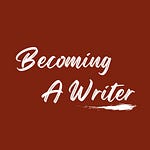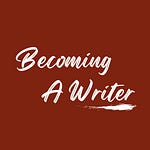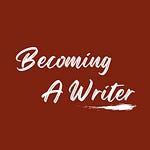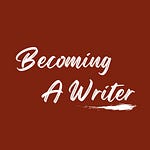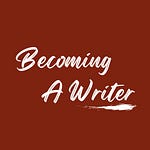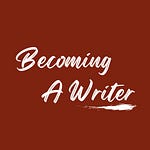Show Notes -
Episode Summary:
In this episode, we explore how journaling can transform both your writing and your inner world. Beyond being a daily habit, journaling becomes a sacred practice that clears creative blocks, builds self-awareness, and strengthens your connection with your craft. Based on my experience, I share my favorite journaling methods, how to make journaling a lasting habit, and the short-term and long-term benefits you can experience.
Key Points Discussed:
Why writers should journal?
Three simple and effective journaling styles.
7 steps to stick with your journaling habit.
Why you should treat your journal as your safe space?
Short-term and long-term benefits of journaling that you may experience.
Takeaways:
Journaling is a sacred act of self-expression and reflection.
There’s no “right” way—just consistency and honesty is required.
Let your journal be your safe, playful, and healing space.
Over time, it will transform both your writing and your relationship with yourself.
Transcript -
Podcast Intro -
Welcome to Becoming A Writer podcast, where writing inspiration is served fresh in 20 minutes or less, every 4th Saturday.
I am Rubina Gauri Gomes, and together we'll learn how to explore, experiment with, and express our writer selves.
If this speaks to your writing journey, give the podcast a listen! If you enjoy it, I'd love for you to leave a review so others can find it, too. Don’t forget to share your suggestions or questions through the form in the show notes, and let’s grow this community together!
You can find more conversations like this and download your free Writer's Mental Toolbox PDF at rubinagomes.substack.com.
Now, grab a cup of your favourite drink, and let's have a quick chat.
Episode -
Hello, my writer friends! Rubina here.
I hope our previous conversation of facing our creative fears helped you give it a try. Keep trying and don’t lose hope! Eventually you will become friendly with your fears. And then, nothing will stop you from writing and sharing your words.
Today, for our forty-first conversation, we will understand the transformative power of journaling and how it can help us become the writers we are.
Journaling has always been one of the most helpful tools in personal development. Roman Emperor Marcus Aurelius journaled. The young Jew in hiding, Anne Frank journaled. And there are many examples, especially on social media, where people share their experience of and tips for journaling.
Journaling is essentially a tool for self-reflection - figuring out what is going on inside you - mind, body and soul. It’s a tool for self-expression - to give words to what you have kept hidden and suppressed inside, and do so in a safe space. It’s a tool for healing - to recognise parts of you that hurt, to understand and embrace them, and to set them free. And for writers, journaling is a great tool to unlock your creativity.
Why Writers Should Journal?
Journaling helps you clear out any creative blocks. In a journal, you can dump all the clutter, fears and noise from your head, therefore making space for new ideas and beliefs.
Journaling helps you discover yourself. Over time, you understand your own thoughts, patterns, habits and emotional triggers, which subconsciously affect how you behave as a writer.
For example - you might discover that you procrastinate on writing that video script, not out of laziness, but because you’re afraid of looking foolish—the same fear your teacher instilled in you when you shared your dream of becoming a short film director capturing cultures around the world.
Journaling is also a great space to collect and work on the snippet of ideas you gather throughout your life. Raw story fragments, character sketches, dialogues, and possible path for the story often come alive first in your journals.
Daily or regular journaling also trains your writing muscles for long-term endurance, both mental and physical, and reduces the resistance we experience while facing the blank page.
A journal also acts as your emotional anchor. It is inevitable that you will experience the highs and lows of your human life and your writer life. Regularly journaling about them will help you ground yourself during uncertainty, and keep you motivated.
Writing a journal is also, in a way, writing your autobiography. Just like the thought snippets of Marcus Aurelius and the diary entries of Anne Frank help us see the world in a brighter and more hopeful way, so will someone who will read our words long after we are gone. And no, your journal doesn’t need to be perfect and clean for that - that’s the job for future editor.
How To Journal?
A simple Google search will show you there are thousands of ways to journal. Out of them, there are three that work for me.
Gratitude Journal - which is all about keeping note of all the good things that happened to me that day. This helps me keep a positive attitude towards life. I sometimes go deeper and answer why a particular entry was worth being grateful for, and that intensifies the feeling of gratitude in me.
Writer’s Log - here I keep track of my writing sessions and work that supports my writing - no of words written, my mood during the session, any reflections i experienced, and plans for the next writing session.
And this is my favourite way of journaling - it’s Stream of Consciousness journaling. In this form of journaling, I write whatever is floating around in my head, and whatever I want to get off my chest. I write my Stream of Consciousness journal entries until I have nothing more to talk about the topic at hand or until I am physically tired to go any further.
In all three ways, I handwrite, and it doesn’t matter how long or short the entries are as long as I am journaling regularly.
How To Stick With Journaling?
Wanting to journal and being able to do it are two different tasks that need your effort for accomplishment. Let me share with you seven steps to make sure you stick with your journaling habit.
Make it small.
Keep a bare minimum of how much you want to journal daily. It could be writing three lines or writing for five minutes. Or writing one page of your A5 sized journal - which is my bare minimum. The point isn’t how much you write, also known as, the volume. The point is that you write consistently.
Keep it handy and visible.
Keep your journal close to you where you are sure to see it every day. I keep my journal next to my keyboard, therefore I never miss seeing it. Which immediately reminds my brain that we have some journaling to do.
Pair it with a habit.
If you have trouble making journaling a habit on its own, pair it with a habit you already have going. You could journal while drinking your coffee, or right after meditating, or before you go to sleep. I write one page of Stream of Consciousness before I work on my project of the day. Also, I write in my Writer’s Log right after I am done with the work day. This way I’m sure to get the bare minimum and immediate record of the day.
Make it your safe space.
In our days and lives, we already have external and internal pressures to perform our various responsibilities. Don’t let journaling be a part of that list. Journaling is for your eyes, heart and mind only. So it is okay to be messy. It’s okay to vomit out your frustration and anger onto the journal pages. It’s okay for you to be your true self here. You are safe here. Let yourself be seen, understood and loved by your journal, which is essentially an extension of you.
Use tools you enjoy.
If you like pretty journals, go for that. If you prefer Field Notes, go for that. It could be a simple notebook, an art journal, some sheets of paper or even an app on your phone. Even for your writing instrument - it could be a ballpen, gel pen, glitter pen, marker pen, pencil or your fingers tapping away on your phone screen. Use the tools that would make the journaling experience fun. Focus more in the enjoyment of the activity than what’s convenient.
Anchor it to a purpose.
Just like for any habit, for journaling as well, you need a reason why you want to do it. Is it to gain clarity about yourself and your life? Is it to explore your creativity? Is it to have a safe space for your emotional release? Knowing why you want to journal will give you reason enough to stick with it.
It’s okay to miss days.
Don’t judge yourself if you miss a day or week or month. Just simply come back to your journal when you can. Journaling is a practice of self-exploration, self-compassion and self-acceptance. It’s not a test that needs to be passed or a productivity habit that needs to be checked off your to-do list. So be kind to yourself and journal as consistently as you are able to.
Your Safe Space
Let journaling be your safe space. A private space where words can live without judgement, expectation or editing. It’s different from your writing projects because there’s no pressure to be clever, profound, or publishable.
Your journal as a safe space provides you with the following -
No audience - Nobody else has to read it. Whatever you write is between you and the page.
No rules - Grammar, spelling, flow - none of it matters.
No pressure - You don’t have to create something “useful.” The act of writing in your journal is enough.
No time limit - You can write a sentence and be done or you could write for pages and pages for as long as you want.
Permission to be honest - This is your space to rant, confess, daydream, cry and contradict yourself. In short, your journal is a space where you can remove the various masks you wear when engaging with the world.
Permission to be playful - Just like you get to be honest in your journal, you get to be silly and playful as well. You can doodle. You can mix up languages. You can leave sentences unfinished. You can draw emojis. Let yourself free on the pages of your journal.
Let your journal be your safe space that lets you be honest about your dreams, doubts, fears and secret wishes. It helps you connect the dots which you would have otherwise missed. Journaling becomes a safe container for your stress, anger, joy, inspiration and hope, giving us emotional release we all need. This will lead to clarity in your thoughts as well. Ultimately, it reminds you that your words don’t have to impress; they have to exist. Your words - and the thoughts and feelings behind them - matter, regardless of their form.
What Results To Expect?
As much as we are told not to think about the end result, it’s inevitable that we wonder about it. So here are some results that I have experienced in my almost 8 years of journaling.
Immediate results you may experience withing days or weeks include -
Mental clarity - your thoughts feel less scattered as the pages of your journal hold them for you.
Stress relief - the emotional release you experience after consistent journaling lowers anxiety therefore calming your mind.
Easier writing flow - journaling acts as a warm-up for your creative writing.
Boosted awareness - you start noticing details, feelings and small moments more vividly, which is gold for writers.
Confidence to begin - even on bad days, the journal reminds you: I can still write something.
Long term results you may experience over months and years of journaling include -
Deeper self-understanding - patterns, fears and desires reveal themselves, helping you know who you are, what needs changing and where you can go.
Creative reservoir - over time, your journal becomes a treasure chest of ideas, lines, characters, and themes to mine from.
Stronger writing discipline - journaling builds the muscles of showing up and writing daily, making it easier to commit to larger projects.
Emotional resilience - we writers face rejection, doubts and dry spells. A journal is a steady companion that helps you process and bounce back up.
Voice development - your private, unfiltered writing slowly shapes your unique voice and style. What’s raw in the journal often matures into your signature in your writing projects.
Personal life and writer life integration - journaling blurs the line between writing and living. You don’t just write stories or essays - you begin to live as a writer.
I can spend the whole day explaining the what, why, how of journaling. But the best way to experience the benefits of journaling in your life and in your writing is by giving it a try.
So my suggestion is start small and keep going. Let journaling help you forge the writer in you.
Well, that’s it for today.
Until next time, keep writing, my friend.
Podcast Outro -
Thank you for catching up with me today.
I hope you found some inspiration to help you grow a deeper relationship with your writer self.
If you enjoyed today’s episode, don’t forget to follow the podcast and drop a review! You can also share any suggestions or questions with me through the form in the show notes.
You can find more conversations like this and download your free Writer's Mental Toolbox PDF at rubinagomes.substack.com.
That’s a wrap for now! See you later!
📚 My non-fiction book for writers -
Soul Writer vs. Social Writer - Find Out Which One Are You?, Why Is It Important, and Finding Your Sweet Spot.
Amazon US | Amazon UK | Amazon India
🏡 My homes on the internet -
Spotify | Apple Podcast | Amazon Music
YouTube | YouTube Music | Substack (podcast)
A Rubina’s Bojra Production
Directed By: Rubina Gauri Gomes
Produced By: Rubina Gauri Gomes, Books She Has Read, And Life Lessons She Has Learnt
Written By: Rubina Gauri Gomes
Host & Voice Talent: Rubina Gauri Gomes
Music by: Happy Lazy Loop by Serge Quadrado (At Adobe Stock)
Audio-Visual Edited By: Rubina Gauri Gomes
Marketed By: Rubina Gauri Gomes
Fueled By: Coffee ☕
Made With Love, For Fellow Writers And Creatives.🤍








